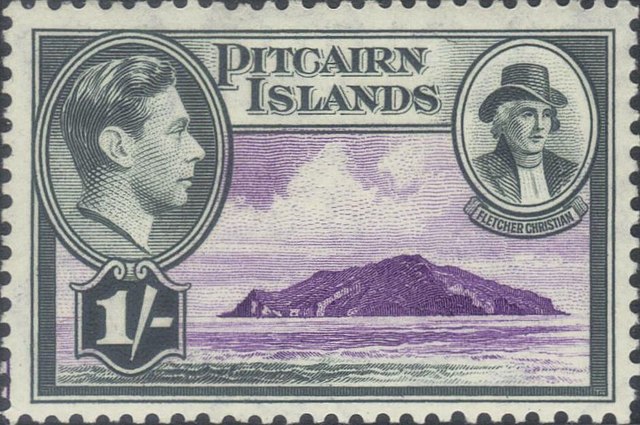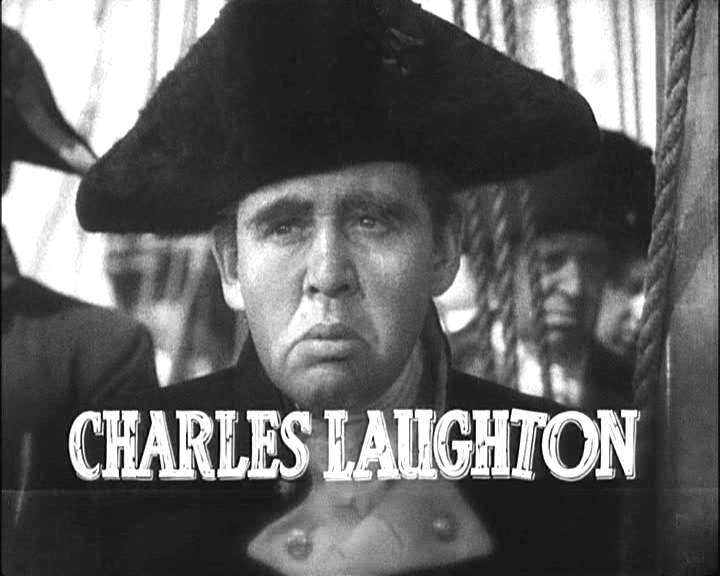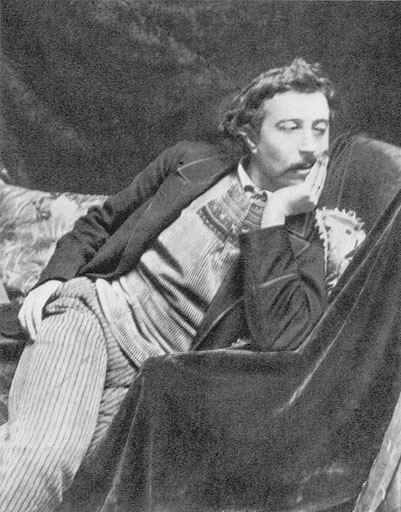Fletcher Christian and William Bligh are permanently linked to the Mutiny on the Bounty. Listen to the true story of this infamous incident.
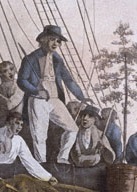
Initially, Fletcher Christian was not destined for a naval career. He was Born on the 25th of September, 1764 in the Cumbrian village of Eaglesfield. His father, Charles, was a wealthy attorney originally from the Isle of Man. Descended from several generations of Manx judiciary, it was the senior Christian’s original aim that all three of his sons get an education and pursue the law. Ann Christian, Fletcher’s mother, had brought her ancestral home of Moorland Close into the marriage and initially the family lived a prosperous existence as landed gentry. Unfortunately, Charles Christian died when Fletcher was four years old and his mother continued to spend and live lavishly, despite the lack of any meaningful income. Eventually, despite being bailed out a few times by wealthy relatives, Ann Christian fled to the Isle of Man, where she subsisted on a small annuity, safe from any prosecution for the massive debt she accrued during Fletcher’s childhood.
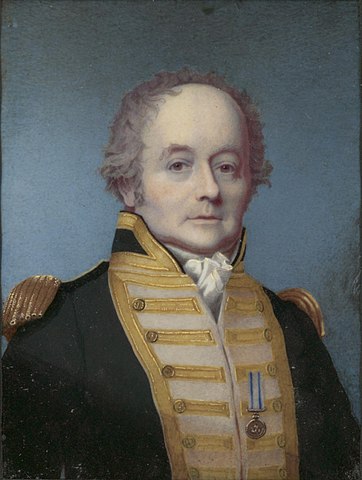
Through family connections, Christian approached Lieutenant William Bligh, also currently relegated to commanding ships involved in the rum and sugar trade of the Caribbean. Although Bligh was underemployed in his current position, he had a reputation as a skillful navigator who had served with Captain Cook, during Cook’s third and final voyage.
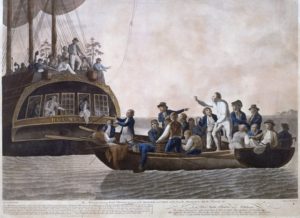
just before dawn on April 28, 1789, four men entered Bligh’s cabin while he was sleeping and quickly subdued and tied the Lieutenant’s wrists behind his back. Christian, along with Charles Churchill, John Mills and Thomas Burkett were armed with weapons removed from the ship’s armory and they dragged Bligh on deck. Although told to keep quiet, Bligh began yelling, waking other officers, including John Fryer who was warned by the armed group not to leave his cabin. On deck Bligh continued shouting at the various crew members who were either mocking their commander or anxiously hoping to accompany him, regardless of the uncertainty. Initially, Christian now brandishing a bayonet to intimidate those who might attempt to physically subdue him, lowered a small boat that could hold only Bligh and a few other men. Unseaworthy and unable to hold all of the men who demanded to leave, Christian then agreed to put the Bounty’s launch into the water. This craft was 23 feet long, about seven feet wide and allowed for a sail that gave its occupants some ability to navigate. Normally designed for at most fifteen occupants, 18 crew members squeezed into the launch, with Bligh eventually forced to join them.
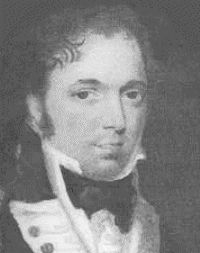
Within hours, two other men, Peter Heywood and George Stewart emerged from the island and boarded the Pandora. All three men denied any responsibility for the mutiny, Coleman previously identified by Bligh himself as one of the crew members who was loyal but forced to stay behind. Heywood asked Hayward to absolve him of any blame but Hayward was noncommittal. The ruthlessness of Edwards was underlined by his subsequent order to immediately confine all three men in irons. He maintained that it was not up to him to render a judgement on guilt or innocence in the matter, that was the responsibility of a subsequent court martial upon the Pandora’s return to England.
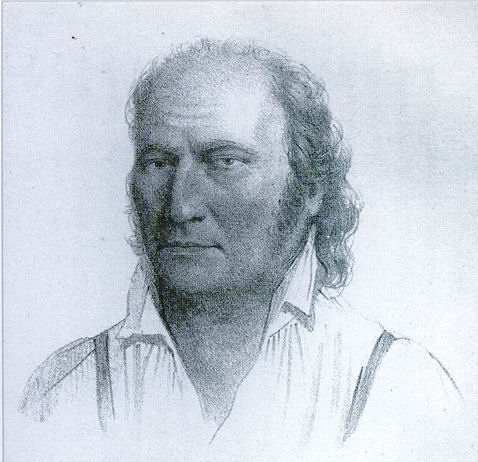
Smith, a former deserter whose real name was John Adams, relaxed when Folger explained that he actually was not from England but from America. The captain of the Topaz was correct in that Smith aka Adams had no idea what America was but he opened up about what had happened once the Bounty arrived on Pitcairn. The nine mutineers divided up all of the land and expropriated most of the women as their wives. The six Tahitian men were treated as slaves and eventually rebelled and killed five of the mutineers, including Fletcher Christian. Because many of the Tahitian women were romantically involved with the dead mutineers, they were angry and subsequently murdered all of the Tahitian men.
Podcast: Play in new window | Download
Subscribe: RSS

